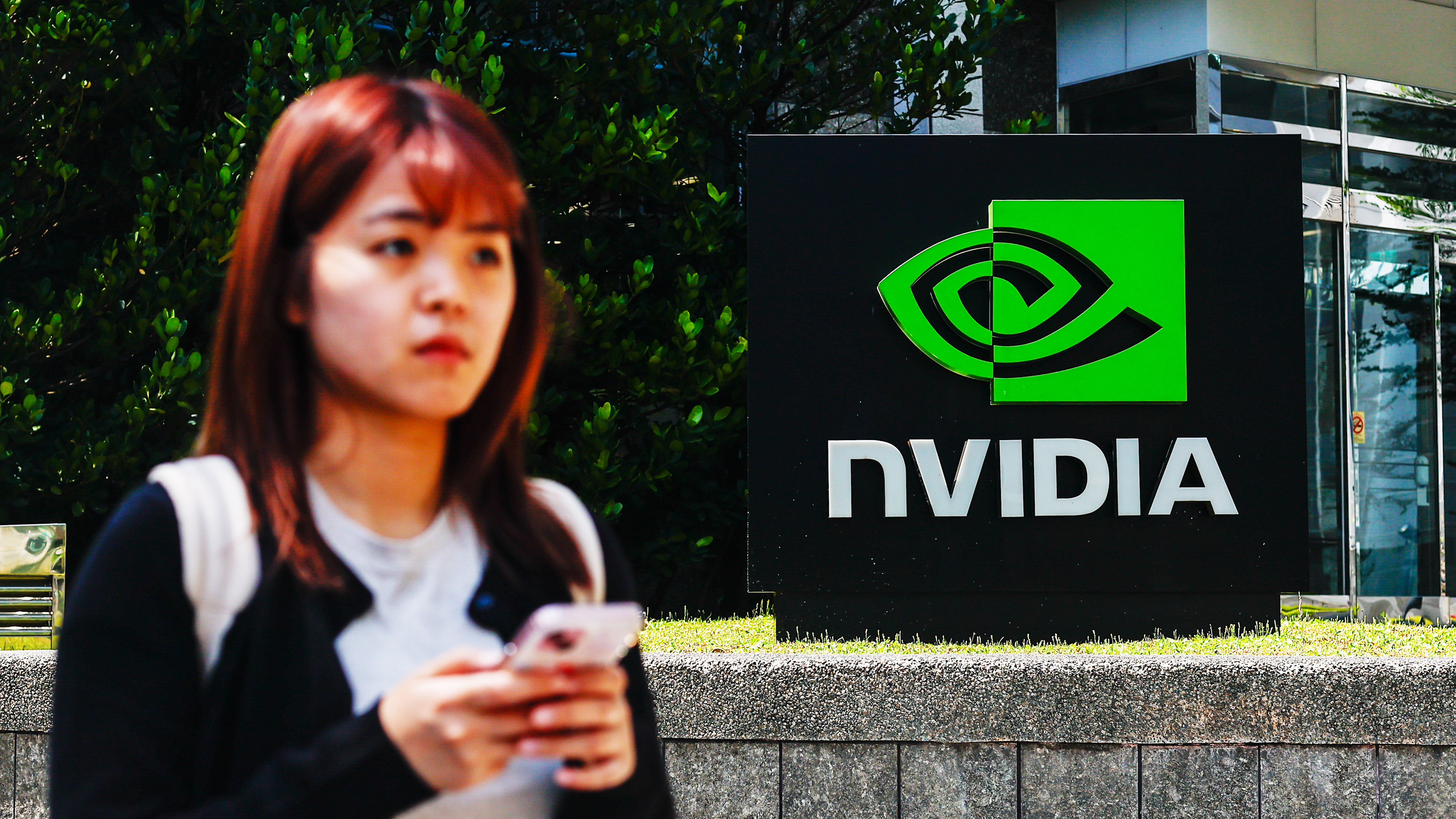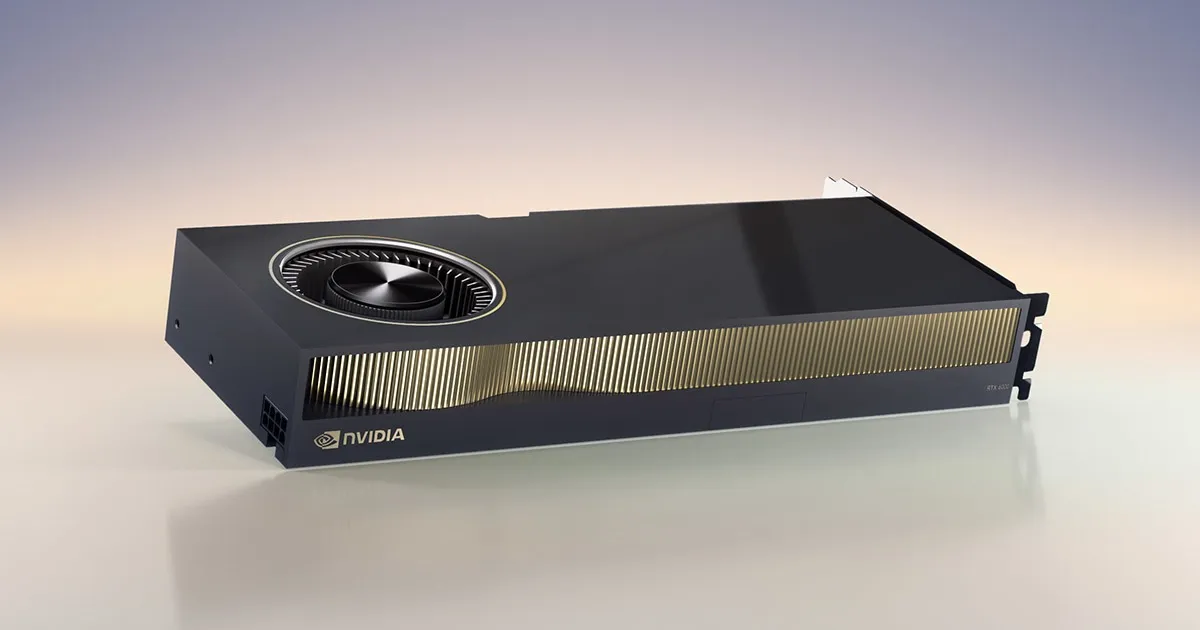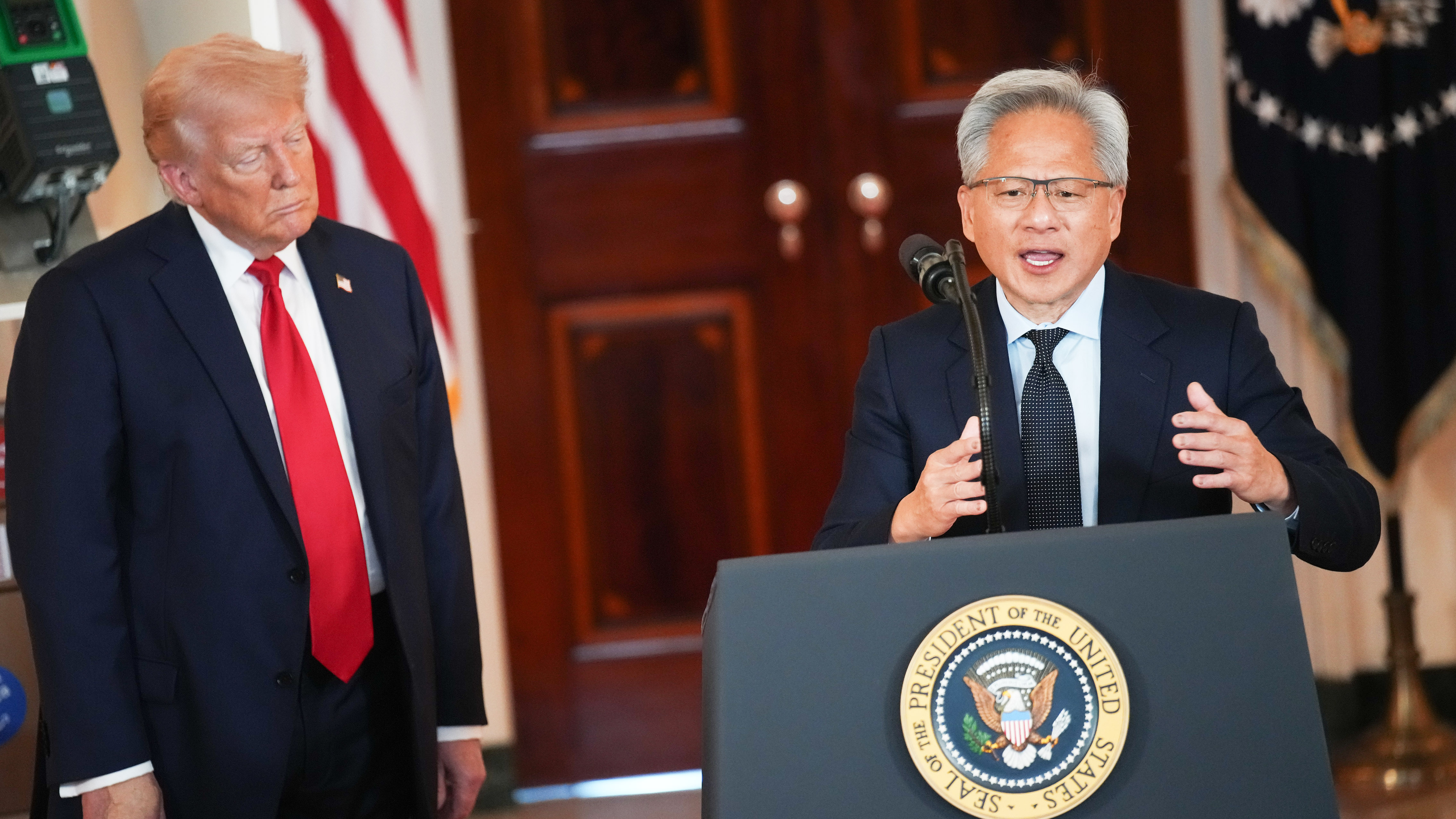
All the latest news, reviews, and guides for Windows and Xbox diehards.
You are now subscribed
Your newsletter sign-up was successful
The ongoing tensions between the US and China, with NVIDIA in the middle, have reached new heights.
News that officials from the Cyberspace Administration of China told top domestic tech companies, including Alibaba and ByteDance, to stop buying and testing NVIDIA's RTX Pro 6000D AI GPUs emerged on Wednesday (via Financial Times).
The RTX Pro 6000D is an AI chip designed specifically for the Chinese market, with neutered specs akin to those in NVIDIA's other China-only chips, including the H20.
Some of China's tech companies were already lining up to buy and test the chip, but that's been squashed by the new official directive.
In response, NVIDIA CEO Jensen Huang said he is "disappointed with what I see," remarking to BBC reporters that "the advance of human society is not a zero-sum game" and that the US must "make sure that people can access technology from all over the world, including China."
Huang's recent remarks echo those from July, following the reversal of the H20 AI GPU ban by the Trump administration. Huang said:
"We believe that every civil model should run best on the U.S. technology stack, encouraging nations worldwide to choose America."
All the latest news, reviews, and guides for Windows and Xbox diehards.
Huang added that he expected to discuss the issue with President Trump on Wednesday night as he wraps up his UK state visit. NVIDIA's CEO isn't the only tech head accompanying Trump; Microsoft's CEO, Satya Nadella, is also notably aboard.
President Trump is expected to meet with Chinese President Xi Jinping on Friday, where Huang is hoping that the friction will be sorted out. Speaking to the BBC, Huang said:
President Trump is very clear. He wants America to win, and President Xi wants China to win, and it's possible for both of them to.
Adding to the tensions between the US and China are comments from Republican House Speaker Mike Johnson.
As reported by CNBC, Johnson named China an "adversary" of the US following news that China had blocked tech firms from buying and using NVIDIA's RTX Pro 6000D chips.
They steal our intellectual property. They have no regard whatsoever for US trademark law or any of the other provisions that make for fair trade agreements. It is not the fault of the United States that there are these strained relations."
Mike Johnson, US House Speaker
China has been attempting to free itself from the pull of NVIDIA's leading AI chips for years, and it seems like we are inching ever closer towards a time when NVIDIA's AI hardware is no longer welcome in the country.
What is the NVIDIA RTX Pro 6000D AI chip?
There's been a lot of press surrounding NVIDIA's H20 AI GPU recently, so I don't blame you if the RTX Pro 6000D came out of nowhere.
The RTX Pro 6000D is seemingly a successor to NVIDIA's RTX 5090D, and it's a secondary option to the H20 — which uses the older Hopper architecture — for Chinese markets.
Reports emerged in July (via Tom's Hardware) that NVIDIA was working on a new AI GPU based on its latest Blackwell architecture that met US export controls to China.
NVIDIA hoped to begin shipping the new AI GPU to China in Q3 2025, and it aimed to sell between one and two million units by the end of the year. That goal, of course, has now been stomped on with the new Chinese regulations.
How did the US, China, and NVIDIA arrive at this tense standoff?
In August, I covered news that Chinese officials were putting pressure on tech firms to avoid using NVIDIA's older H20 chip.
This directive, which was not an outright ban, arrived alongside growing fears from Chinese officials that NVIDIA was working with the US government to install backdoors, kill switches, and other spyware in its hardware.
NVIDIA, of course, denied all allegations, and Chinese clients remained free to order the chips at risk of committing a social faux pas.
Stoking concerns on China's side was the flip-flopping of export rules for the US government. In April, the Trump administration imposed a flat ban on H20 export to China, which was then reversed in July.
It didn't take long for NVIDIA to announce that it would need an extra 300,000 H20 AI GPUs from TSMC to meet demand, on top of the 600,000 to 700,000 chips NVIDIA had already stockpiled, awaiting customers.
In an unprecedented move, August saw President Trump announce a new deal with NVIDIA and AMD for export licenses for their AI chips. The companies could sell their chips to China, but they'd have to pay the US government a 15% tax on those sales.
And earlier this week, Chinese authorities accused NVIDIA of breaking antitrust laws in connection with the purchase of Israeli chip designer Mellanox.

Follow Windows Central on Google News to keep our latest news, insights, and features at the top of your feeds!

Cale Hunt brings to Windows Central more than nine years of experience writing about laptops, PCs, accessories, games, and beyond. If it runs Windows or in some way complements the hardware, there’s a good chance he knows about it, has written about it, or is already busy testing it.
You must confirm your public display name before commenting
Please logout and then login again, you will then be prompted to enter your display name.


